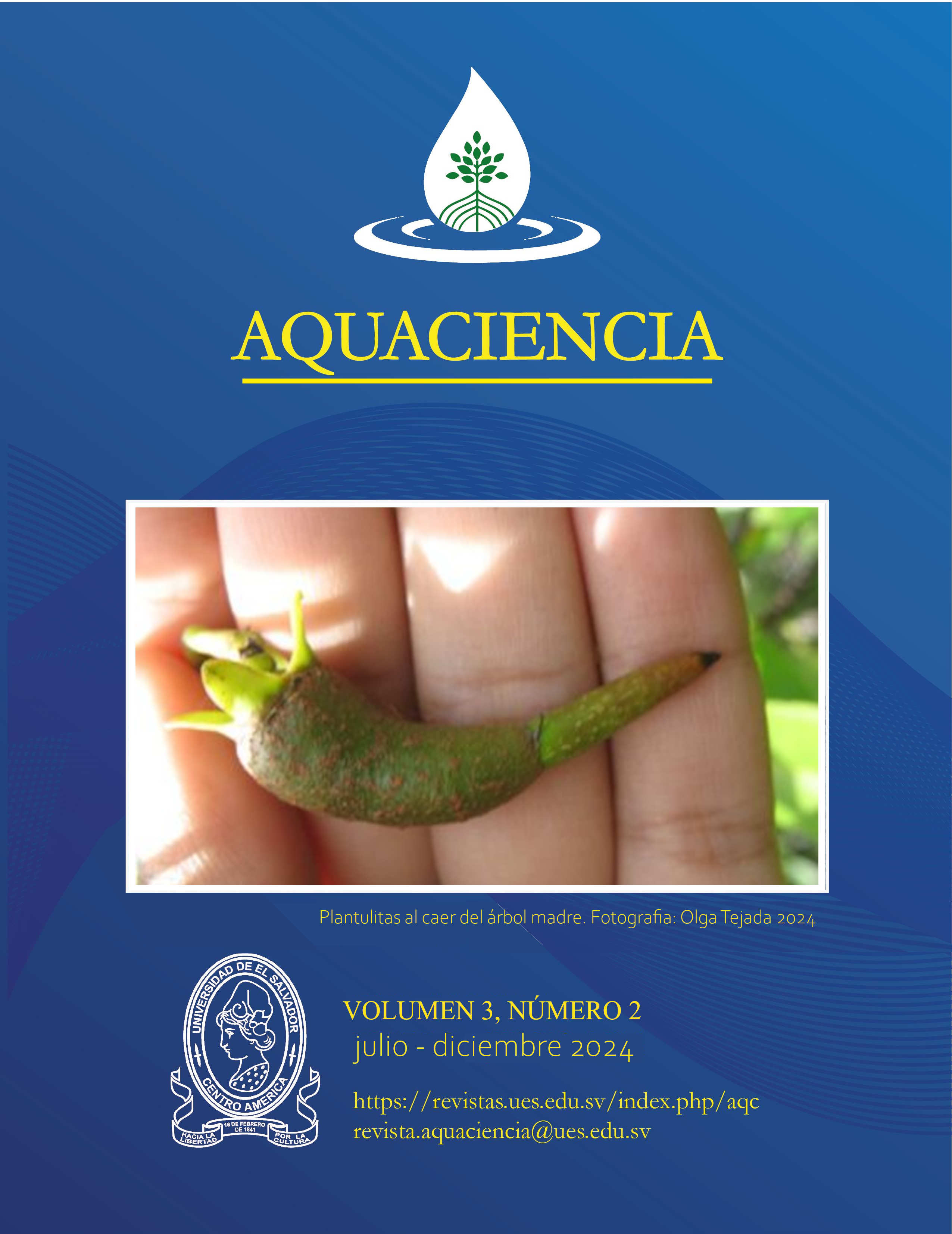The fragility of the coastal guardians
Keywords:
Mangroves, felling, fragile ecosystems, ecosystem services, firesAbstract
Mangroves are vital ecosystems, fragile and highly sensitive to environmental variations in their surroundings. Their unique adaptations, such as the germination of seeds before falling from the tree, the presence of specialized roots and a special metabolism, allow them to survive in adverse conditions. However, their slow growth and constant pressure to maintain their internal equilibrium under extreme conditions make them vulnerable to threats such as logging, fire, siltation, altered salinity of estuarine water and other negative impacts from human activity. Despite these challenges, mangroves continue to play a crucial role in protecting the coastal zone.
Downloads
References
Alongi, D. M. (2022). Climate Change and Mangroves. En S. C. Das, Pullaiah, & E. C. Ashton (Eds.), Mangroves: Biodiversity, Livelihoods and Conservation (pp. 175-198). Springer Nature. https://doi.org/10.1007/978-981-19-0519-3_8
Cano-Ortiz, A., Musarella, C., Piñar Fuentes, J. C., Gomes, P., del Rio, S., Quinto-Canas, R., & Cano, E. (2018). Analysis of the Conservation of Central American Mangroves Using the Phytosociological Method Analysis of the Conservation of Central American Mangroves Using the Phytosociological Method (pp. 189-206). https://doi.org/10.5772/intechopen.78947
Díaz Gaxiola, J. M. (2011). Una revisión sobre los manglares: Características, problemáticas y su marco jurídico. Importancia de los manglares, el daño de los efectos antropogénicos y su marco jurídico: caso sistema lagunar de Topolobampo. Ra Ximhai, 355-370. https://doi.org/10.35197/rx.07.03.2011.05.jd
Ministerio de Medio Ambiente y Recursos Naturales MARN. (2017). Inventario nacional de humedales El Salvador (p. 96). https://www.undp.org/es/el-salvador/publicaciones/inventario-nacional-de-humedales-el-salvador
Moreno-Casasola, P., & Infante Mata, D. M. (2016). Conociendo los manglares y selvas inundables (Primera edición). https://www.itto.int/files/itto_project_db_input/3000/Technical/Conociendo%20los%20manglares%20y%20selvas%20inundables.pdf
Ocean. (2018). Manglares | Smithsonian Ocean. https://ocean.si.edu/ocean-life/plants-algae/mangroves
Organización de las Naciones Unidas ONU. (2023). Tres cuartas partes de los manglares del mundo están amenazados | Noticias ONU. https://news.un.org/es/story/2023/07/1522977
Ramírez, X. D. (2017). La multifuncionalidad de los manglares y la desalinización natural de sus plantas [Text]. iAgua; iAgua. https://www.iagua.es/blogs/xavi-duran-ramirez/multifuncionalidad-manglares-y-desalinizacion-natural-plantas
San Miguel Ayanz, A. (2011). VIII.- Selvicultura Tropical. Manglares.pdf. Universidad Politécnica de Madrid. https://www2.montes.upm.es/Dptos/Dsrn/SanMiguel/APUNTES_PRESENTACIONES/SELVICULTURA%20TROPICAL/VIII.-%20Selvicultura%20Tropical.%20Manglares.pdf
Sea Grant. (2023). Procesos y destrezas, Integración de las ciencias, la ingeniería, la tecnología y la sociedad con la naturaleza y Conceptos transversales e ideas fundamentales. Issuu. https://issuu.com/seagrantpr/docs/guia-el-manglar/s/17968899
Unidad Ecológica Salvadoreña UNES. (2016). Impacto de la Agroindustria Azucarera en El Salvador (p. 85). UNES. https://unes.org.sv/wp-content/uploads/2019/11/Estudio-Impacto-de-la-Agroindustria-Azucarera-en-El-Salvador.pdf
Downloads
Published
Issue
Section
License
Copyright (c) 2024 Scientific Outreach Magazine AQUACIENCIA

This work is licensed under a Creative Commons Attribution-NonCommercial-ShareAlike 4.0 International License.






